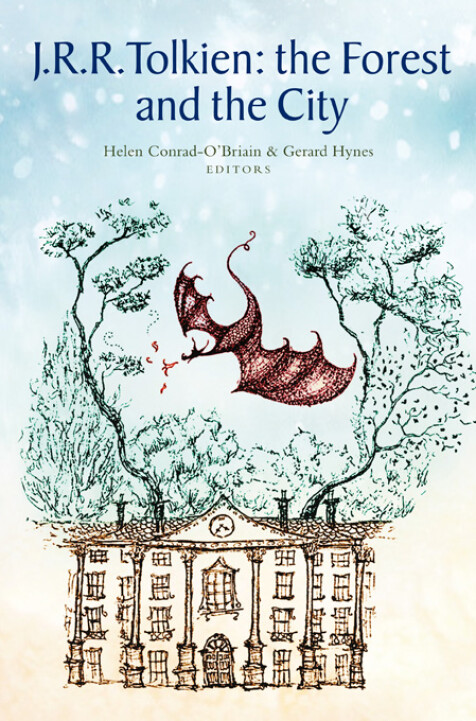Tolkien
The forest and the city
Helen Conrad-O'Briain & Gerard Hynes editors
‘Tolkien: the forest and the city is one of the rare books on Tolkien that manages to be both serious and accessible, avoiding the twin plagues of Tolkien criticism – defensively eulogistic fandom, and defensively arcane academicism. Essays by world experts on the subject, such as Tom Shippey and Verlyn Flieger are supported by innovative younger scholars, such as Jane Carroll and Dimitra Fimi, and between them they have produced a fine volume on the interface between nature and culture in his books. Although Tolkien’s work has been widely appropriated by ecocritics, this volume, by exploring a remarkable range of Tolkien’s cultural reference from the Arts and Crafts movement to the Spanish Civil War, from landscapes to food, and from deforestation to Dante, demonstrates the complexity of his intellectual positions. This is an engaging, lively, and in many ways groundbreaking contribution to Tolkien scholarship', Peter Hunt, emeritus professor of English and Children’s Literature, Cardiff University and editor of J.R.R. Tolkien: a new casebook (2013).
‘This collection comprises a judicious mixture of established authorities and more recent voices. Together, they bring a wealth of scholarship, seasoned reflection and new insights to the subject of nature and culture, in their many aspects, in Tolkien’s work … the first paper, by Tom Shippey, is a tour-de-force … Michael D.C. Drout contributes another sterling paper … this collection is a valuable addition to Tolkien scholarship … it could enrich the understanding of many beyond, as well as within, the academic demesne’, Patrick Curry, Tolkien Studies (2015).
‘Tom Shippey manages his characteristic charm and insight on “Goths and Romans in Tolkien’s Imagination” … It is hard to fault the care, attention to detail and love for Tolkien on display [in this volume]', Adam Roberts, TLS (April 2014).
‘A collection of elegant, informed essays each of which explores JRR Tolkien’s extensive imaginarium from a different perspective … this book will be of great interest to a very wide audience', Peter Hegarty, The Irish Catholic (April 2014).
‘The volume deserves a wide readership, and will have something to offer anyone interested in Tolkien studies. The contributors include heavyweights of Tolkien scholarship like Tom Shippey, Verlyn Flieger, Thomas Honegger, and Michael D.C. Drout, but also several newer voices … Because of the diversity of the subject matter as well as the critical approaches of the essays, the volume can also serve as a kind of overview of the state of the field … each of the fifteen essays in this conference proceedings volume will act as a stimulus to further thought and scholarship and there is no better measure of its success', T.S. Miller, Mythlore (Spring/Summer 2014).
‘The volume does provide an intriguing, scholarly and broad treatment of a different topic suggested by its subtitle. Most of the essays explore, from a variety of critical approaches, the contrasting portrayals of city and forest within Tolkien’s works … contributions from Tom Shippey and Michael D.C. Drout, among the most respected scholars in the field of Tolkien studies, are consistent with their reputations for providing keen insights and careful scholarship with polished and intriguing prose’, Matthew T. Dickerson, Interdisciplinary Studies in literature and environment (Autumn 2014).
‘This is an elegant collection … the contributors and the editors are to be applauded for gathering such fine work by young scholars. While tending to focus on The Lord of the Rings, the collection does make welcome forays into Tolkien’s wider legendarium’, Alaric Hall, Gramarye (Summer 2015).
‘The collection contains some strong and illuminating essays and all chapters have their virtues … This collection has something for many interests and backgrounds … despite many proclamations of the decline or even death of the Humanities, Tolkien’s writings continue to be proof against them, and this collection helps show why, in a variety of voices and often in new ways’, Kelley M. Wickham-Crowley, Journal of Tolkien Research (2014).

